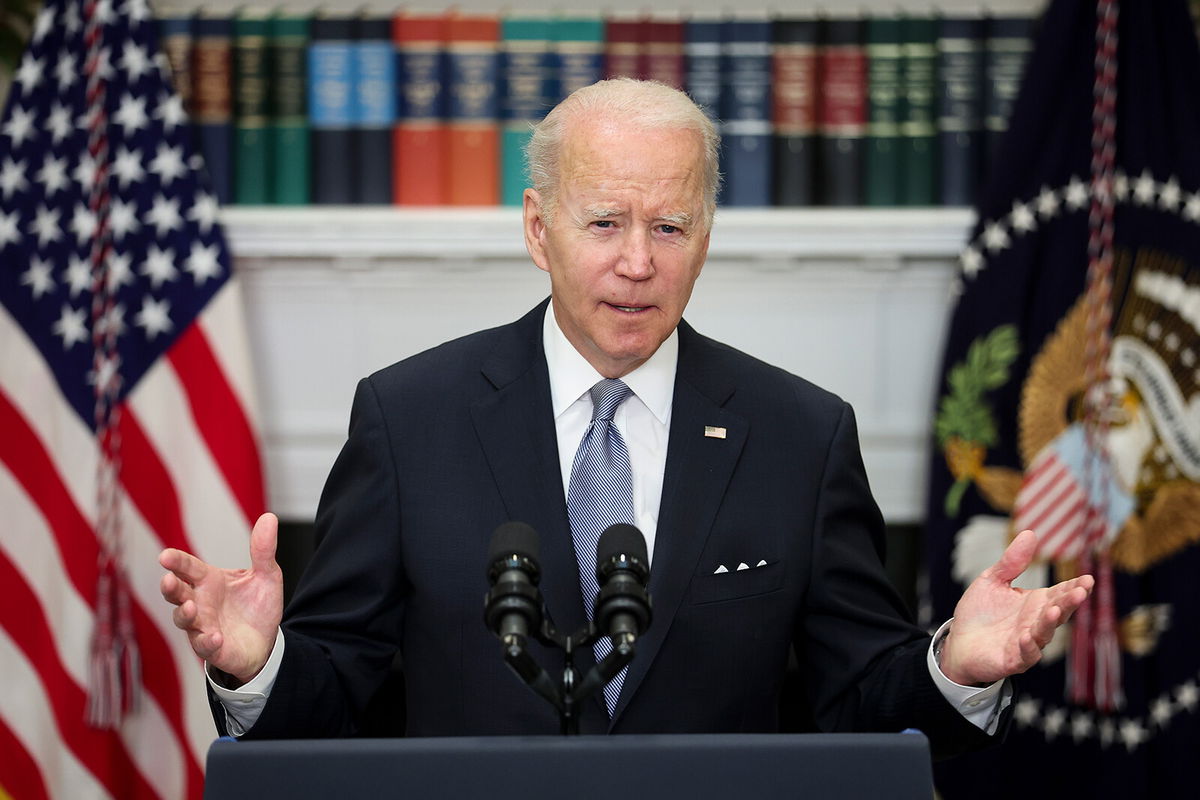Biden administration to renew Covid-19 funding push when Congress returns next week

The Biden administration will renew Covid-19 funding push when Congress returns next week. President Joe Biden is pictured at the White House on April 21
By Betsy Klein, CNN
The Biden administration will renew its push with lawmakers to secure Covid-19 funding next week when Congress returns from recess, a White House official told CNN, following inaction from the Senate on a $10 billion funding package before the two-week Easter break.
Also on top of the agenda: more aid for Ukraine. President Joe Biden announced Thursday that the US will send an additional $800 million in military assistance to Ukraine as the Russian invasion soon enters its third month in what US officials warn could be a potentially bloody new phase.
“As Congress returns from recess, the Administration will be focused on working with lawmakers to secure funds to keep aid flowing to the Ukrainian people, and continue protecting the American people from Covid-19,” the official said.
The official added, “Congressional inaction is already taking its toll — from uninsured Americans suddenly having to foot the bill for tests, treatments and vaccines, to states receiving fewer monoclonal antibodies to keep people out the hospital. Further inaction is unacceptable, and Congress must promptly provide us the funds we urgently need to protect the American people and abroad.”
The Biden administration has been sounding the alarm for weeks that additional funding is needed to continue the federal Covid-19 response, even as it seeks a return to “normal” with many pandemic-era restrictions lifting.
Concerns raised by officials include:
- A possible lack of adequate resources to purchase enough booster shots for all Americans if additional booster shots are authorized
- The possibility that monoclonal antibody treatments run out as soon as next month
- A scaled-back purchase of AstraZeneca’s preventative treatment
- Insufficient testing capacity and supply going forward
- Impacts to research and development
Impasse over Covid aid
The Biden administration requested $22.5 billion in supplemental Covid-19 relief funding last month in a massive government funding package, but it was stripped from the bill. It included funding for testing, treatments, therapeutics and preventing future outbreaks. Negotiators were able to reach an agreement on a scaled-back $10 billion package, but Congress left Washington earlier this month without passing that bipartisan bill amid a disagreement over the Title 42 immigration policy — a pandemic-era rule that allowed migrants to be returned immediately to their home countries citing a public health emergency.
The impasse before the Easter break came as Republicans demanded a vote on an immigration amendment to restore Title 42. Democrats objected, criticizing Republicans for what they called an eleventh-hour ask in a negotiation they had thought was final.
After the Biden administration announced that it planned to end Title 42 in May, Republicans and Democrats alike blasted the decision.
Still, Democratic leaders said a vote then on an amendment would have violated the agreement they thought they’d struck with Republicans. While a number of Democrats had said they would support standalone legislation reinstating Title 42 as long as a public health emergency exists in other parts of the government, even members who had opposed Biden’s action said they didn’t want to have the debate tied to Covid funding.
“We had a bipartisan agreement and unfortunately, because of an extraneous issue, we aren’t going to be able to get the 10 Republican votes we need to pass it,” Democratic Sen. Debbie Stabenow of Michigan said at the time, referring to the procedural vote threshold to move bills forward in the Senate.
The inaction before the break marked the second time a tentative deal on a Covid relief package had been scuttled in just over a month. In March, a $15.6 billion package that had been negotiated by House and Senate leaders collapsed when a group of House Democrats revolted against it because of how it was paid for.
The-CNN-Wire
™ & © 2022 Cable News Network, Inc., a WarnerMedia Company. All rights reserved.
CNN’s Lauren Fox and Rachel Janfaza contributed to this report.